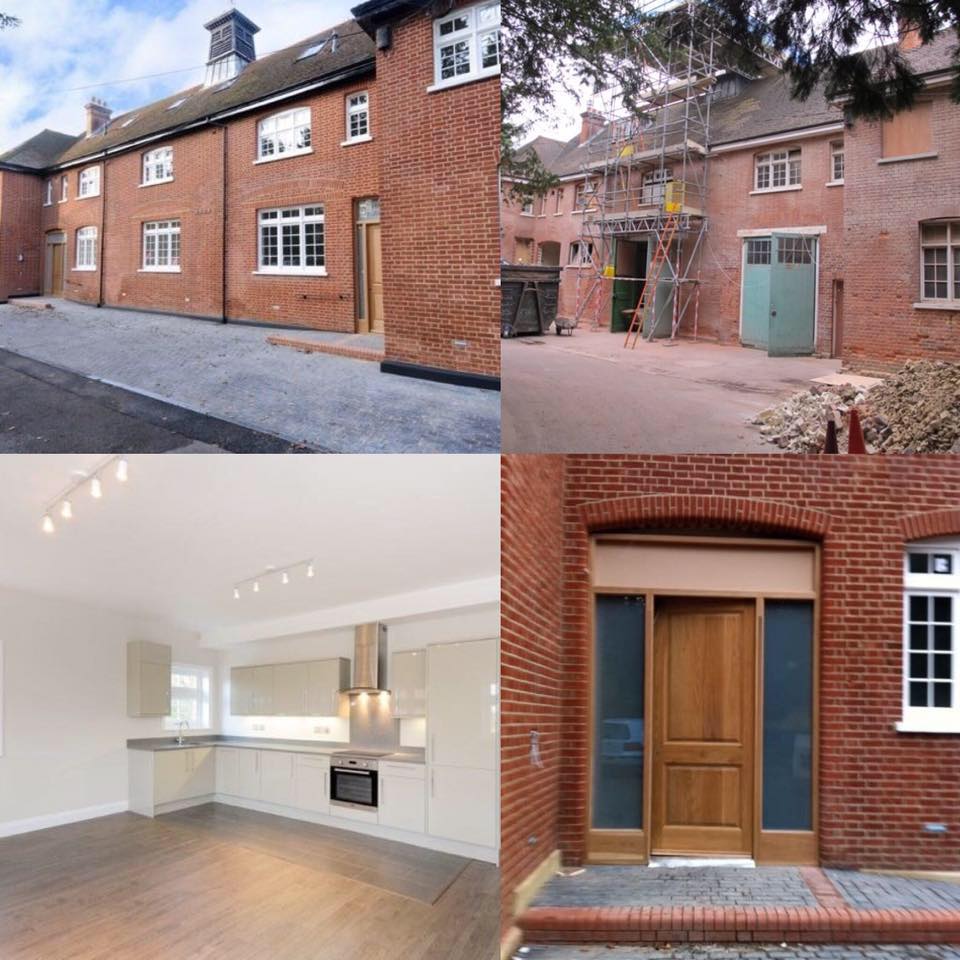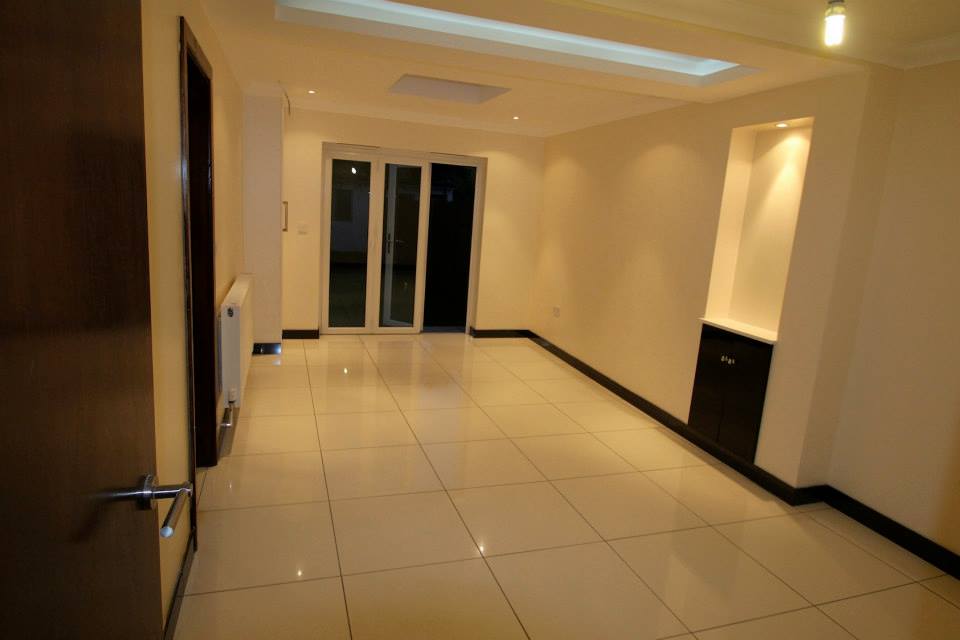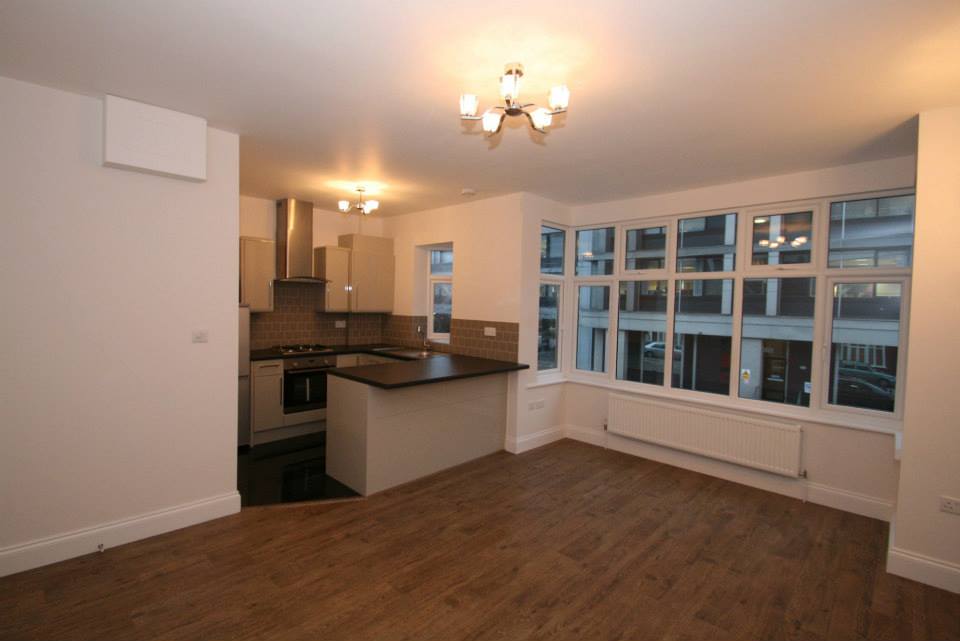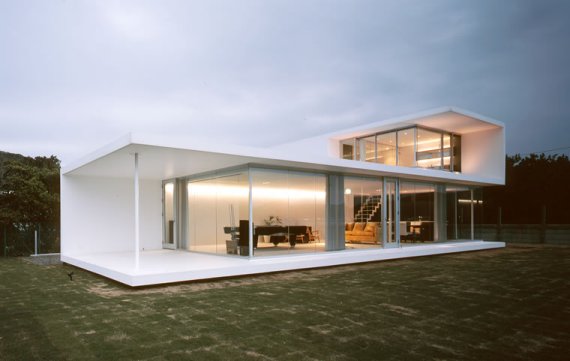Interview with Re:Design Group
The Re:Design group Architectural Services London is a unique group of architectural designers in London who, in addition to working in construction, are experts in architectural drawing services. They work to provide complete solutions to architectural services needs.
Designing Buildings Wiki spoke to the Director of Re:Design, Noman Beg about the practice and the techniques and methods that they use...
|
Designing Buildings Wiki (DBW): How do Re:Design differ from other architecture firms in terms of turning project dreams into reality? |
Noman Beg (NB):
The way we deal with a project itself is very personal. We tend to advise clients and make them aware of the difficulties and challenges in realising their visions more than perhaps others would.
If a client wants to do something that would be overly complex or ramp up their costs, we will put unorthodox designs and features within a development just to allow them to visualise things they may not have thought about. In doing so, this allows them to achieve what they desire in an efficient and economic way. We go the extra mile in terms of prepare nearly all of our project in 3D, building a proposal from the ground up, even at planning stage.
This helps break things down, realise problems early on and helpful to show clients how the proposal is going to affect their property. Rather than just talking about it, we tend to be very visual in that respect.
|
DBW: What design technology do Re:Design use? |
NB:
We have a very multi-lingual firm in terms of design software we use. We are happy for our guys to use whatever they’re comfortable with, as long as there’s cross-platform compatibility, we don’t pigeon hole ourselves to one form of software.
A lot of our people are very energetic and want to advance their own skill-set, so we have people using AutoCAD, others using ArchiCad, others using Vectorworks, and all things in between.
|
DBW: What eco-friendly practices and methods do Re:Design employ? |
NB:
We try and be as reasonable as we can in terms of sustainability. We’re not really a very ‘banging the drum’ sustainable practice but we do understand the immense benefit that has to be harnessed where practical. We encourage clients to incorporate multiple measures that can result in a more comfortable setting for the family or household, and reduce energy bills.
|
DBW: How do you increase the success rate of your planning permission applications? |
NB:
For one thing we have a lot of experience in that regard, which plays into it, and we tend to have a good rapport with local authorities. Obviously we know what is and isn’t acceptable but again if a client is asking for something that we feel isn’t going to benefit them or their application, we will be honest and tell them not to go down that route or phase the proposal.
It’s a matter of guiding clients, making them aware of their choices and the limitations and restrictions before it even gets to that stage.
Due to the number of applications we put in – between 10 to 15 each month – over the last 15 years or so, we are well known in the South London local planning authorities, we are therefore able to have relevant discussions and negotiations where required.
|
DBW: What are the biggest challenges Re:Design face? |
NB:
The professional liaison, between us, the client, a contractor and the local authority, and being able to translate that into something that the client wants to achieve.
We are pretty good in terms of understanding people’s requirements, but again it’s a case of actually making them a reality considering all the restrictions and guidelines that are now in place. It’s not a problem for us to design anything, and of course everything can be built at a cost, but if the local authority and their policy guidance doesn’t allow it to happen, or there are obstructions in the way of doing so, it makes our life a lot more difficult.
It would be beneficial for there being more transparency and flexibility in terms of legislation across the regional local authorities to standardise guidance and policy. A common sense approach is required in development assessment, which seems to be lacking currently.
A lot of applications are assessed at delegated officer level, this means our proposal is being viewed and assessed on the opinion of someone who may not have been in the industry very long, or truly understand the benefits of a proposal...due to this, things seem to be getting more and more difficult at the moment.
|
DBW: If you could change one thing about the construction industry what would it be? |
NB:
Make people more accepting of the fact that you pay for a quality service!
|
DBW: What are you hoping to see in the election manifestos that might make a difference to Re:Design? |
NB:
In the manifestos themselves... I’m not too sure, but I’m hoping that the government is able to provide comfort that the market isn't going to go anywhere.
The problem we’ve had is that over 2016, it was a very tough year in terms of getting projects off the ground, a lot of larger projects stalled, projects put on back-burners. Ever since Brexit was announced there has been an explosion in work, because people now know where the market is going and they’re not too worried about what’s going to happen it seems.
I’m hoping the election will balance and stabilise the London market as well because it has shot up to levels that are absurd, nonsensical in places. There needs to be a check and measure put in place to bring levels back down to what is practical/affordable.
|
DBW: What does the future hold for Re:Design? |
NB:
We are focusing and driving ourselves more to be a professional due diligence and construction detailing practice, more focused on aspects post planning approval. This is where the majority of our expertise lies. The fact that we are able to build up proposals in 3D has proven invaluable in foreseeing problems and complex site conditions prior to even digging a foundation on site.
We are also moving more into construction based management and have a design and build arm which is now very active in detailing and undertaking full package works for clients. This is something we would like to bring more to the forefront and promote to developers and clients.
[edit] Find out more
[edit] Related articles on Designing Buildings Wiki
Featured articles and news
The first line of defence against rain, wind and snow.
Building Safety recap January, 2026
What we missed at the end of last year, and at the start of this...
National Apprenticeship Week 2026, 9-15 Feb
Shining a light on the positive impacts for businesses, their apprentices and the wider economy alike.
Applications and benefits of acoustic flooring
From commercial to retail.
From solid to sprung and ribbed to raised.
Strengthening industry collaboration in Hong Kong
Hong Kong Institute of Construction and The Chartered Institute of Building sign Memorandum of Understanding.
A detailed description from the experts at Cornish Lime.
IHBC planning for growth with corporate plan development
Grow with the Institute by volunteering and CP25 consultation.
Connecting ambition and action for designers and specifiers.
Electrical skills gap deepens as apprenticeship starts fall despite surging demand says ECA.
Built environment bodies deepen joint action on EDI
B.E.Inclusive initiative agree next phase of joint equity, diversity and inclusion (EDI) action plan.
Recognising culture as key to sustainable economic growth
Creative UK Provocation paper: Culture as Growth Infrastructure.
Futurebuild and UK Construction Week London Unite
Creating the UK’s Built Environment Super Event and over 25 other key partnerships.
Welsh and Scottish 2026 elections
Manifestos for the built environment for upcoming same May day elections.
Advancing BIM education with a competency framework
“We don’t need people who can just draw in 3D. We need people who can think in data.”


























